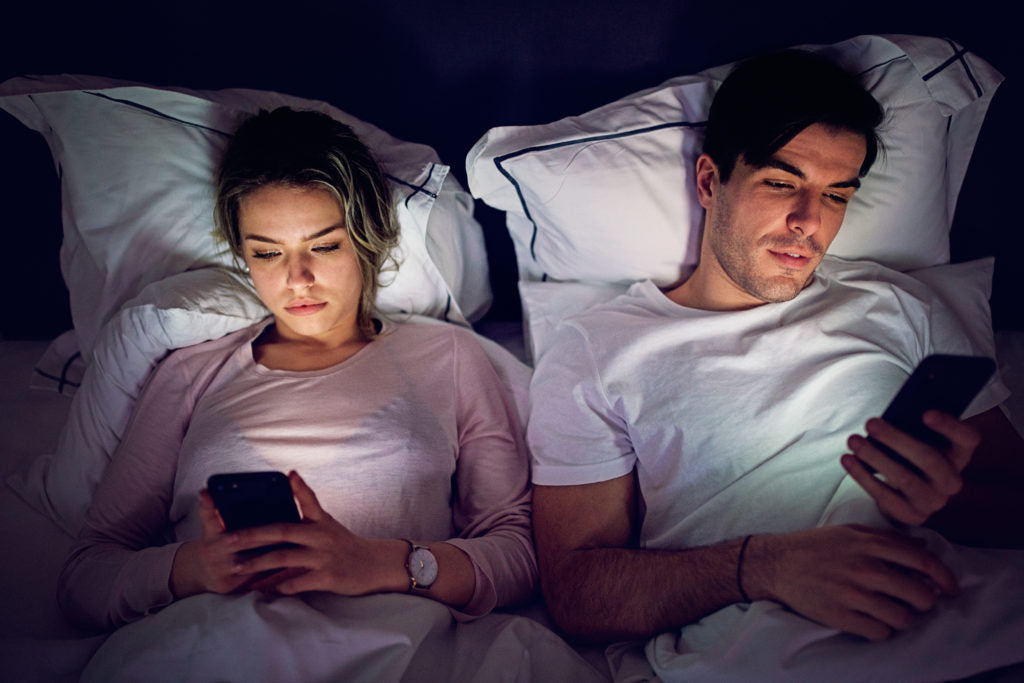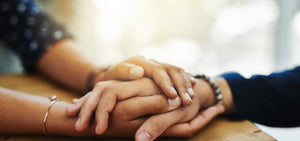Surviving Mondayitis: It’s A Real Thing

Surviving Mondayitis: It’s A Real Thing
Have you ever struggled to get up on a Monday morning? The despair as you hear the alarm going off, the temptation to hit ‘snooze’ multiple times … we’ve all felt it. But did you know that “Mondayitis” is actually a scientifically recognised phenomenon?
Your Body on Different Time Zones
The technical term for “Mondayitis” is ‘social jetlag’, a phrase used by researchers to describe the mismatch between your body’s internal clock, and that of your work hours and social life. Like travel -related jetlag, social jetlag results from the different “time zones” between your weekend and working week.[1]
Like travel -related jetlag, social jetlag results from the different “time zones” between your weekend and working week.[1]
Think about it: whilst we normally follow some kind of routine for work and sleep during the week, Friday and Saturday are when late nights with friends or Netflix binges occur. Staying up late then skews your normal sleep and wake times by several hours compared to during the week.
Adjusting your sleep, wake and even meal times each weekend has a similar effect on your body to taking a trip into a different time zone. Come Monday morning, you re-enter the old time zone dictated by your work schedule, experiencing the fatigue, sleepiness, impaired concentration and irritability that you feel after returning from a trip – a classic case of “Mondayitis”!
Social Jet Lag – A Cause of Disease
Whilst it would be easy to brush social jetlag off as an annoying part of modern life, it’s actually associated with an increased risk of developing heart disease,[2] obesity,[3] and diabetes.[4]
Whilst it would be easy to brush social jetlag off as an annoying part of modern life, it’s actually associated with an increased risk of developing heart disease,[2] obesity,[3] and diabetes.[4] This is because social jetlag disrupts your body’s natural circadian rhythm, the 24-hour cycle which regulates your sleep and wakefulness, and governs many bodily processes essential for good health.[5] These effects on your body are independent of how many hours you sleep,[6] indicating that sleep regularity is as important as sleep duration for good health.

Too Bright to Sleep, Too Dark to Wake
If you may need to address to the effects social jetlag are having on your health, it is imperative you understand how your modern lifestyle may already be impacting your circadian rhythm. As your genes have evolved to rise and set with the sun, your circadian rhythm may already be out of balance from being exposed to artificial indoor light during the day, and blue light for several hours after sunset from digital technology. Then, once the weekend hits, and the days and nights get later again, social jetlag is exacerbated even further, alongside its adverse health consequences.
Come to the Dark Side
There is no going back to a time before technology, and most of us probably wouldn’t want to. Therefore, to avoid social jetlag as much as possible, you can look after your circadian rhythms with some simple interventions:
- Keep regular hours: Plan to sleep between 7 and 9 hours each night and minimise variation in sleep time between weekdays and weekends. Reducing the “time zone” difference between your work and social life will reduce the incidence of social jetlag and its adverse consequences.
- Keep night-time light levels low: Use dimmer switches or floor lamps, avoid using screens an hour before bedtime, invest in blackout curtains and ban devices from your bedroom to assist your circadian rhythm in normalising as much as it can, reducing your risk of marked “Mondayitis”.
- Get some herbal help: If you’re struggling to feel sleepy, or needing to retrain your body clock, try the herbs california poppy, zizyphus or lavender, which promote the activation of GABA (gamma-Aminobutyric acid), a calming neurotransmitter. A Healthcare Practitioner can help choose the right herbal combination for you.
- Manage fatigue: Whilst social jetlag may be inevitable at some points, it may mean you need an energy boost to get you through the day. For this, consider using coenzyme Q10 (CoQ10), which will support cellular energy production and therefore combat fatigue.
Come Back to the Present
Social jetlag can be a part of modern life, and it’s exacerbated by the fact many of our circadian rhythms are already out of balance. If you commonly experience those classic Mondaytitis symptoms, consider how you could minimise the impact of social jetlag by implementing the lifestyle and supplemental interventions above. If you can make your sleep and circadian rhythm a priority, you’ll not only start the week feeling fresh, but also improve your health long-term.
[1] Light, Dark, & Your Sleep: Satchin Panda, Part 1 – #466 [podcast on the Internet]. USA: Bulletproof Radio; 2018 [cited 2018 Feb 2]. Available from: https://blog.bulletproof.com/light-dark-your-sleep-satchin-panda-part-1-466/
[2] Forbush S, Fisseha E, Gallagher R, Hale L, Malone S, Patterson F et al. 1067 Sociodemographics, poor overall health, cardiovascular disease, depression, fatigue and daytime sleepiness associated with social jetlag independent of sleep duration and insomnia. J Sleep and Sleep Disord Res. 2017 Apr 28;40(suppl_1):A396-7. doi: 10.1093/sleepj/zsx050.1064.
[3] Roenneberg T, Allebrandt KV, Merrow M, Vetter C. Social jetlag and obesity. Curr Biol. 2012 May 22;22(10):939-43. doi: 10.1016/j.cub.2012.03.038.
[4] Koopman AD, Rauh SP, van ‘t Riet E, Groeneveld L, van der Heijden AA, Elders PJ, et al. The association between social jetlag, the metabolic syndrome, and type 2 diabetes mellitus in the general population: the new hoorn study. J Biol Rhythms. 2017 Aug;32(4):359-68. doi: 10.1177/0748730417713572.
[5] Light, Dark, & Your Sleep: Satchin Panda, Part 1 – #466 [podcast on the Internet]. USA: Bulletproof Radio; 2018 [cited 2018 Feb 2]. Available from: https://blog.bulletproof.com/light-dark-your-sleep-satchin-panda-part-1-466/
[6] Forbush S, Fisseha E, Gallagher R, Hale L, Malone S, Patterson F et al. 1067 Sociodemographics, poor overall health, cardiovascular disease, depression, fatigue and daytime sleepiness associated with social jetlag independent of sleep duration and insomnia. J Sleep and Sleep Disord Res. 2017 Apr 28;40(suppl_1):A396-7. doi: 10.1093/sleepj/zsx050.1064.
- Kevin Tresize






Comments 0